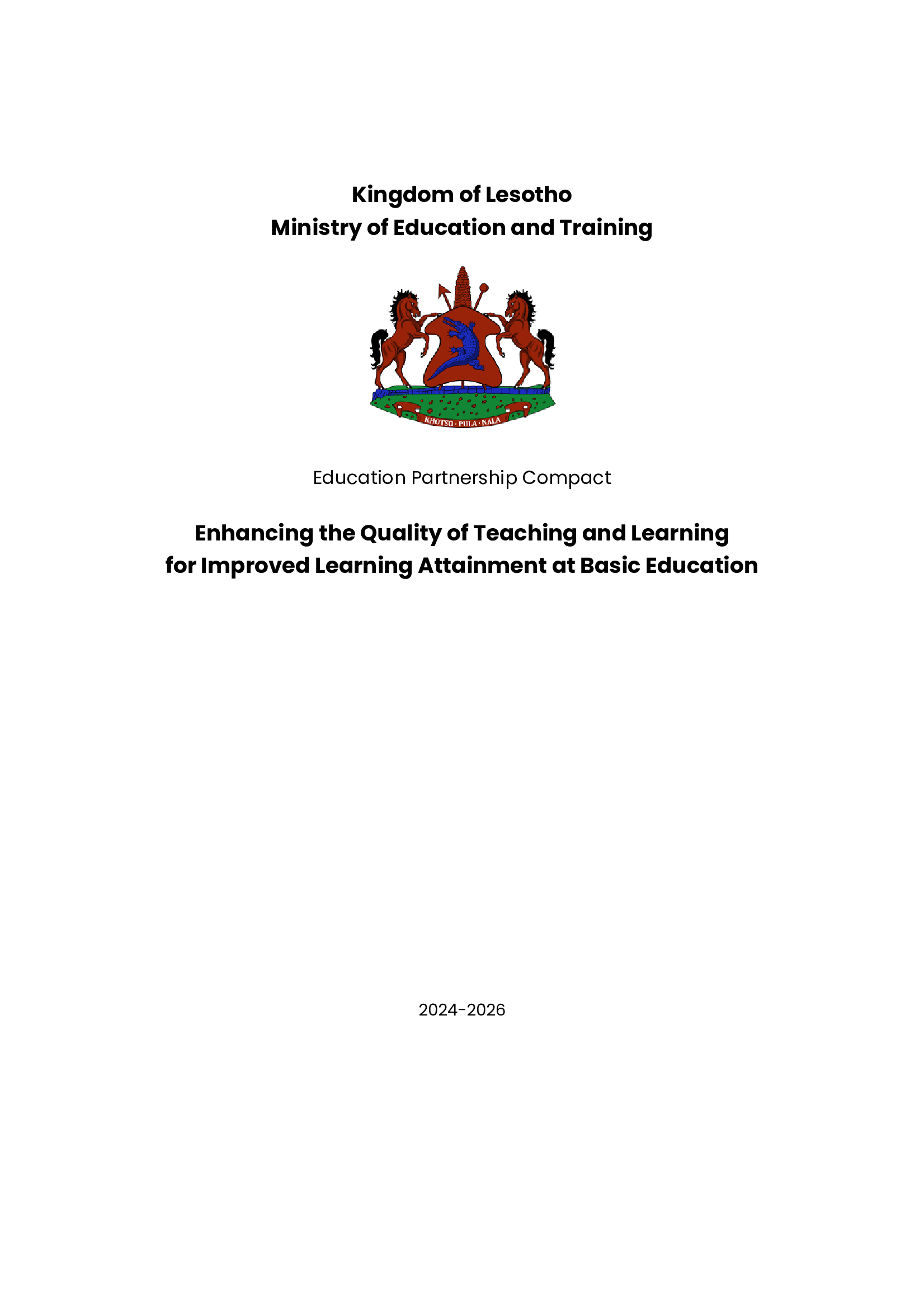Education in Lesotho

Partner since:
Total grant support: US$50,079,587
Grant eligibility:
- Multiplier
- System capacity
- System transformation
Partnership Compact
Priority: Enhance the quality of teaching and learning for improved learning attainment in basic education, focusing on the most marginalized learners.
Coordinating agency: UNICEF
GPE Team lead: Esohe Joan Eigbike

